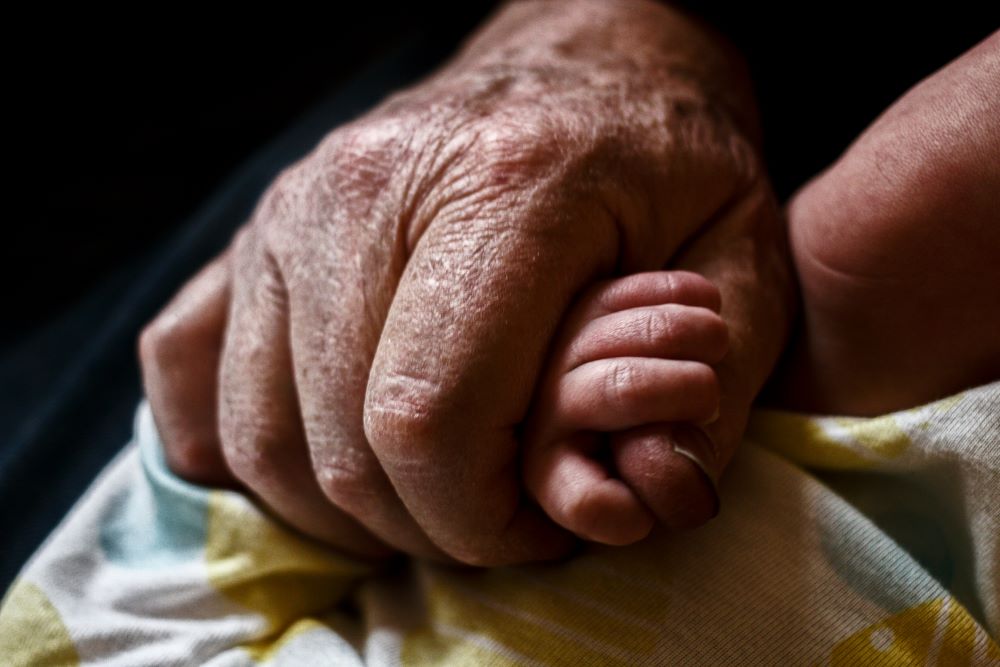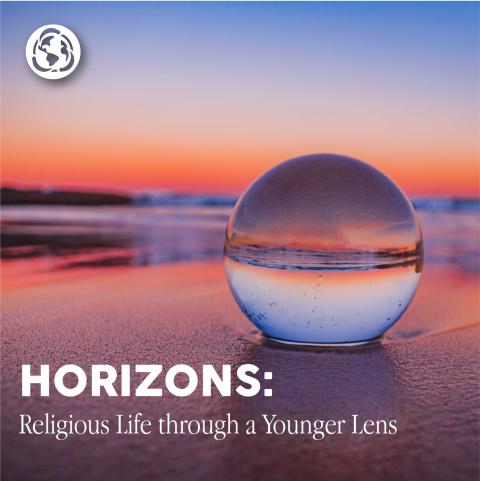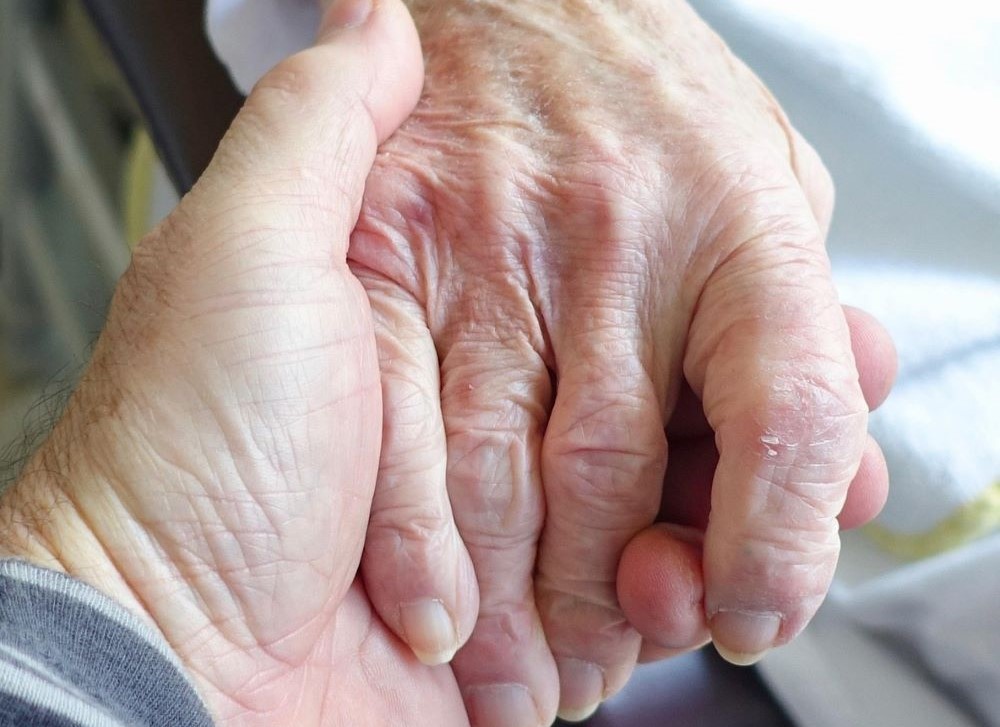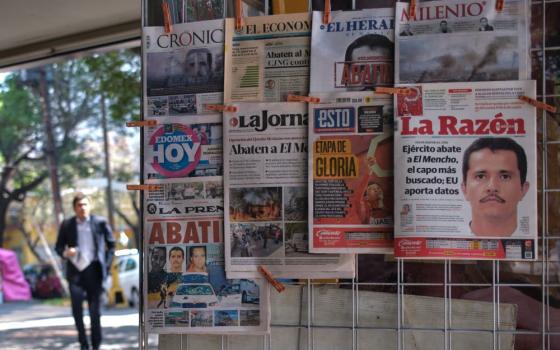
(Pixabay/Joshua Hoehne)

A few weeks ago, my beloved grandmother passed away. At 93 years old, she had lived a full life.
Sharing the news of her death with friends, sisters and colleagues came with a mix of emotions. I was sad, for sure, and yet the fact that I had her in my life for nearly four decades was a blessing not lost on me.
As a woman I work with shared her family's condolences, she also conveyed her teen daughter's amazement: "Sister still had her grandma?!" The same was true of condolences from my sisters in community, many of whom underscored the blessing of my grandmother's long presence in my life. At least one, responding to a typo in the death notice, instead sent her deepest condolences at the death of my mother (who, thankfully, is very much still alive.)
As I combed through sympathy notes on the train back to Boston following her funeral, my phone buzzed with a text from a friend. Knowing the magnitude of the day, she had sent her love and offered her support in whatever way would be most helpful.
Then her message took a turn: "I am so glad to know about the life of another amazing Joan," she wrote, "for my daughter, Susanna Joan, to have as a role model. I hope you can tell her about your grandma as she grows up."
We, like Mary our sister, have the grace-filled ability to give birth to God's love in the world.
Staring back at me from the screen was the face of a beautiful baby girl, little Susanna Joan. With bright eyes and the button nose of a 2-month-old, she looked back at me as if to see all that is good and right in the world. As I looked at her, I thought of the love of her mother, my friend, who'd borne her for nine long months and held her now with such love and affection, a precious gift from God. I thought of my grandmother, who held my hand only a few weeks before as we talked and prayed together as she faced the waning days of her life, so full of vibrant love and strong faith.
Recalling holding Grandma's hand and looking at my friend holding her daughter, I thought of the blessing of the bodies we inhabit, the power they possess, and the deep love they incarnate no matter the stage of life. These bodies of ours are blessed and the lives we live with them are blessings.
On the feast of the Assumption of the Blessed Virgin Mary (Aug. 15), we celebrate Mary, the Mother of God's entrance into heaven. Taken up, body and all, Mary's passing would seem to have little to do with the blessedness of our own bodies. Yet, as I remember my grandmother and think of the people who have called me to the fullness of life in God, I've come to see the Assumption quite differently.
Mary's assumption assures us that by virtue of our being fully human, we find our home in the humanity of Christ and hope in the gift of such union. As Pope Paul VI wrote in his apostolic exhortation Marialis Cultus, the Assumption "is a feast of [Mary's] destiny of fullness and blessedness … a feast that sets before the eyes of the Church and of all mankind the image and the consoling proof of the fulfillment of their final hope, namely, that this full glorification is the destiny of all those whom Christ has made His brothers, having 'flesh and blood in common with them' (Hebrews 2:14; cf. Galatians 4:4).”

(Pixabay/MemoryCatcher)
In that way, our celebration of the Assumption doesn't set Mary apart as an unattainable exemplar, but rather, it reminds us that our bodies are signs of the sacramental grace our lives embody. We, like Mary our sister, have the grace-filled ability to give birth to God's love in the world.
Mary did this in her own unique way. She met the moment in her own time and place. She didn't set out to become an icon or an archetype; she sought to follow God's call.
While it is tempting to think her sinless nature meant her life was without challenge, it wasn't. As St. Joseph Sr. Elizabeth Johnson so aptly puts it in her classic work Truly Our Sister, "To the contrary, as with any human being, as with every woman, she is first and foremost herself." Embracing this fullness of being, we find a friend and mother who can companion us on our journeys.
Advertisement
Mary's "ability to listen and believe God's promise that divinity could enter into our broken world," as Catherine Mooney preaches, is an invitation to us all. That invitation is delivered in prayer as well as in text messages and in helping hands. It is found in the love of those who hold us tight and remind us that we are ultimately God's children — blessed and beloved.
As we celebrate Mary's assumption into heaven, we might also do well to celebrate the bodies that we are blessed to have and the blessed bodies of the loved ones we care so deeply for. Such celebration calls us to live up to our blessedness, and so we also dare not forget the bodies of those who we would rather not have to see — children starving in Gaza, neighbors detained in cages, families sheltering from overhead fire. These bodies too are blessed. To assume otherwise or to turn away is a sin.
Walking together, we make our way toward heaven by blessing the time and place we dwell in today. This is what Mary did and it is how God calls us to respond: to assume blessedness first and foremost as we make our way and to choose to foster the life of God in our world by the lives we live





